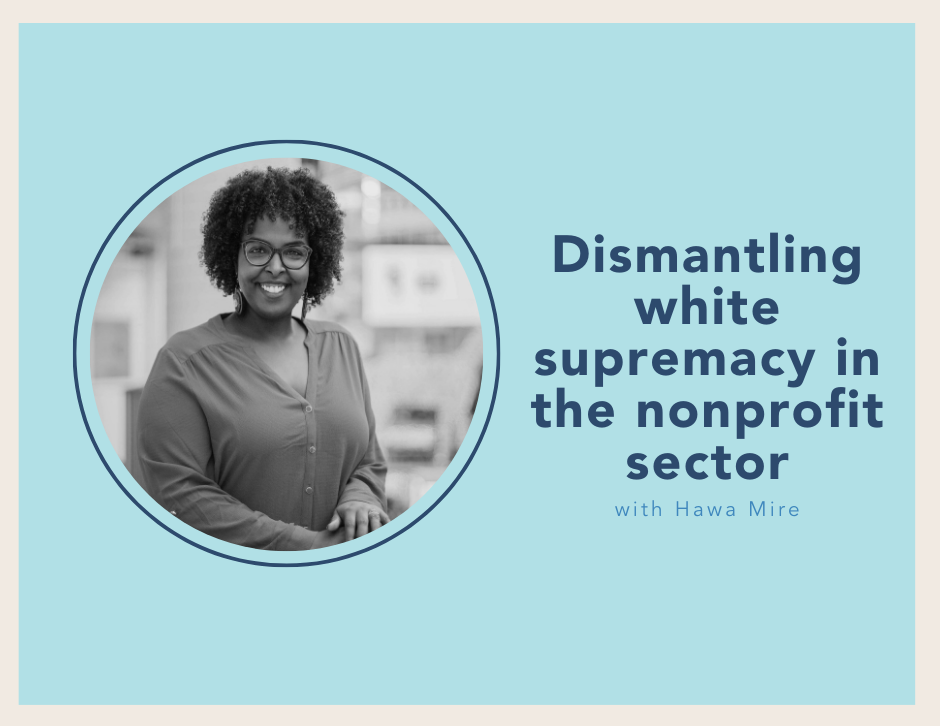How can we have a real conversation about systemic racism and white supremacy, especially at our workplace with power dynamics involved? On today’s podcast, Hawa Mire, strategy and equity consultant and community organizer, walks us through how we might build up our muscles and emotional intelligence for having these important conversations.
Myths that Hawa wants us to leave behind
- If I do better individually, racism and oppression will go away. Racism permeates our society and culture on a systemic level. While individual actions matter immensely, recognizing systemic racism and oppression exist and continue to exist is a starting point for us to tackle and dismantle white supremacy together.
- Only bad people will do racist things. Everyone has blindspots and unconscious bias perpetuated by systemic racism. Assuming that only bad people are racist pigeonholes conversations about race to be about individual character and risk neglecting the whole picture of systemic racism and power dynamics at play.
Hawa’s tips on building up your muscles for talking about race, racism and white supremacy:
- Get out of passive learning. Reading a book is very different from engaging with real people and engaging with the community. Get out there to engage in experiential learning and connect with people and understand their lived experiences.
- Don’t react to a conversation with the sole intent of self-preservation. Conversations about race and racism are much more complex than one person’s good or bad. Allow people to come talk to you about their experiences without making the conversation about you. Respond mindfully and don’t be afraid to recognize you don’t have the language or answers.
- Recognize you’re responsible for the harm of your action and words. Intentions and outcomes can be very different. Having good intentions does not automatically preclude you from inflicting harm. Take responsibility for the impact and outcome of your actions and words.
My favourite quotes from this episode
Post your favourite quote on social to share with us!
“It’s hard for people to get out of this sense of: I’m only a racist if I’m a bad person, not racist if I’m a good person. When you start the conversation around white supremacy there, you don’t get very far because people are much more interested in preserving their sense of themselves. If the conversations involve BIPOC people responding rightfully about their lived experience, then suddenly we’ve got groups of people having conversations about themselves, but only one of those groups of people has any significant power to change the condition of the other.”
“In the context of a work environment, a charity, or an organization especially charities and nonprofit, what often happens is that staff or clients bring forward concerns around race and senior leaders bring in unconscious bias training. And what that does is it, it suggests that everybody in the room has the same level of power to engage in uncovering their bias, and it’s just not the truth. We have to recognize the power dynamics: some of us have the power to do things about our bias, and some of us don’t.”
Subscribe & Review in iTunes
Are you subscribed to the podcast? If you’re not, I want to encourage you to do that today. We have even more great interviews coming and I don’t want you to miss an episode. Click here to subscribe in iTunes!
Resources from this Episode







